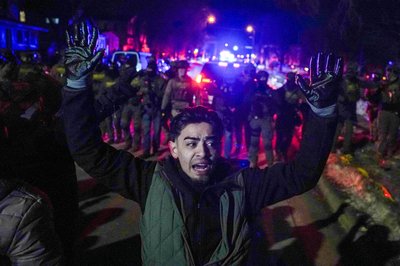Summary
A bipartisan group of lawmakers on Capitol Hill have agreed on a framework to reform the Electoral Count Act. It governs the way Congress counts and certifies Electoral College votes during the presidential election, and it has become the subject of scrutiny after the Jan. 6 attack on the Capitol. Lisa Desjardins joins Judy Woodruff to explain. For a transcript of the story, click here . Vocabulary Electoral College: "A process where the number of electors of each state is awarded to the Presidential candidate who wins the State’s popular vote. A majority of 270 electoral votes (out of 538 electors total) is required to elect the President." — National Archives.Five Facts
- What changes are lawmakers proposing to reform the Electoral Count Act?
- When was the Electoral Count Act first introduced in U.S. history and why?
- Who is supporting this framework?
- Why do advocates see reforming the Electoral Count Act as important, as explained by Lisa Desjardins?
- How many Republican nominees for the U.S. house from Texas question the 2020 election results?
Focus Questions
The framework introduced by lawmakers includes two major changes to the Electoral Count Act. Do you agree with these proposals? Would you add more or less? Why or why not? Media literacy: How can you better understand the Electoral College system and dig deeper into its impact on recent elections?For More
Watch this video for a history of the Electoral College:- Should the Electoral College stay or go? Debate using this NewsHour Classroom lesson plan .
Evelyn Chi, a rising sophomore at Amherst College, wrote today’s Daily News Lesson with editing by Luke Gerwe. Fill out this form to share your thoughts on Classroom’s resources. Sign up for NewsHour Classroom’s ready-to-go Daily News Lessons delivered to your inbox each morning.





